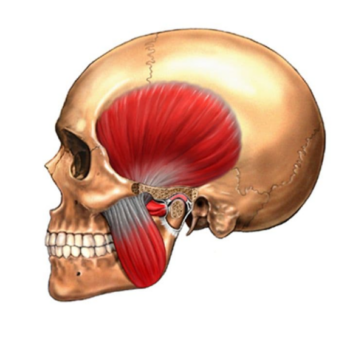ORAL PHYSIOTHERAPY
TMJ and bruxism treatment, Puerto de la Cruz, Tenerife
The TMJ is the joint that allows the jaw to move. It is one of the most complex joints in the body. These movements are necessary to perform basic functions such as chewing, speaking, etc.
Bruxism is the habit of clenching or grinding the teeth. For these cases Artedental works together with a specialist physiotherapist who will help to solve the oral consequences, as well as the corporal ones, correcting the bad habits that have led to the problem.

Causes of TMJ problems
1.Bruxism.
Bruxism is a disorder characterised by clenching, grinding or clenching of the teeth. Bruxism can be diurnal or nocturnal or both at the same time. People who brux, in addition to having problems with the wear and tear of their teeth, also strain the jaw joint, the TMJ.
2. Dental malocclusions.
When our teeth do not fit together correctly, the whole oral system is decompensated,
3. Poor postural hygiene.
It is important to acquire good postural habits from an early age or to correct bad habits because the body is a complex system that tends to compensate.
4. Dislocation of the jaw.
5. Arthritis.
6. Fractures.
7. Stress.
Stress overloads the muscles of our mouth, face and neck.
Treatments for TMJ disorders
Knowing the cause or causes that are creating problems in the temporomandibular joint is vital in order to find a solution. So yes:
If it is bruxism, an unloading splint is made to help relieve the tension in that area, in addition to reducing the problems presented by people who grind their teeth, such as dental fractures, cracks or premature tooth wear,
If the problem lies in dental malocclusion, then the orthodontist will be in charge of correcting it by means of the most appropriate orthodontic treatment for each case.
We also have an Oral Physiotherapy service at Artedental in Puerto de la Cruz. A physiotherapist, Noemí Dávila, specialised in the face and neck area, helps us to relax the area.
Frequently Asked Questions about Bruxism and TMJ
There is no absolute consensus on the causes of bruxism within the medical community. But this problem does not usually appear alone, it is often associated with sleep disorders such as nocturnal apnoeas, hallucinations, REM sleep disorders, snoring, and seems to be closely linked to the stress that patients endure during the day and their level of anxiety.
Body posture, malocclusion, obesity, the consumption of substances such as alcohol, coffee and tobacco as well as some medications can also be the cause of teeth grinding, i.e. bruxism.
If our bruxism is nocturnal and we don’t have a partner to alert us to the sounds we make when we grind our teeth in our sleep, it is somewhat more difficult to notice. But anxiety, stress, headaches, insomnia often accompany bruxism. As well as pain in the joints and muscles of the jaw and face, earache, tooth sensitivity to both hot and cold things.
Difficulty in articulating the jaw and even stiffness in the shoulder muscles may also occur.
La fisioterapia en odontología ayuda a ganar amplitud articular y a calmar los dolores que se presentan en la zona debido a los trastornos de la ATM, Para esto la fisioterapeuta trabaja las zonas blandas que rodean la articulación de la boca y nos ayudará también a adaptarnos a la férula de descarga.
Además nos da unas pautas para que podamos hacerlo también en casa.
